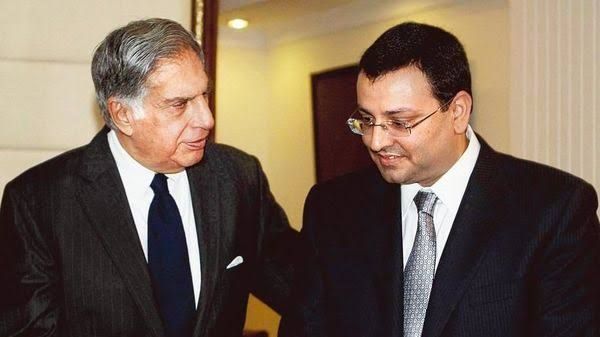7 Reasons for the Tata-Mistry Fallout
- In 2014, Cyrus Mistry wanted to make a direct election donation of Rs. 10 crores during the Odisha Assembly election through Tata Sons. His reason for this was that Tata Group had big Iron Ore deposits in the state. However, historically, Tatas have never made a donation for any election other than parliamentary. Moreover, the Tatas have always maintained high standards by not making direct donations in any election. All Tata donations are through an electoral trust which also has other corporate participants and donation details are public. Ratan Tata managed to vote down this idea through his nominees on the board, however he was upset that such an idea was even mooted in the first place.
- Two Tata companies wanted to bid for the same army contract. Ratan Tata and other board members had suggested to Cyrus Mistry that there should be a synergy among companies and only 1 bid should be represented by the Tata Group, and as chairman it was his job to make sure of the synergy. However, Cyrus Mistry, and his advisors, did not want to interfere in any manner in the business of subsidiary companies. Ultimately, 2 bids were made by the Tata Group for the same contract which made them look like fools in the market as they were competing against themselves. There is another version of this given by close aides of Cyrus Mistry, that Mistry tried to create the synergy but failed to do so.
- The Tata Sons Articles of
Association states that if a deal between a third party and subsidiary company
crosses certain threshold, the approval of the board of Tata Sons needs to be
taken to seal the deal. This did not happen in a certain instance opposed to
claims made by aides of Cyrus Mistry. According to Vijay Singh, a Tata Trustee,
“The communication sent by the Company Secretary of
Tata Sons was not a board circular or resolution, which required approval and
was merely something sent for information after the deal had been sealed”. Ratan
Tata was upset that Cyrus Mistry did not reprimand the management of this
company for bypassing the management of Tata Sons and flouting the rules laid
in the Articles of Association.
- A US based Pizza Chain called Little Caesars wanted to enter into a Joint Venture with the Tata Group. When they approached Tata Sons with the proposal, instead of redirecting them to one of their group companies fit to handle such proposals (like they did to Tata Global Beverages in the case of Starbucks), Cyrus Mistry decided to take up the offer in the capacity of Chairman of Tata Sons, meaning a Tata Sons – Little Caesars JV. This upset as well as shocked a number of people and did some damage to the group’s reputation.
- Past and current board members of Tata Sons and trusts were also worried about Mistry’s laid-back attitude towards worker agitation. The felt that as Chairman, Mistry must go to factories and face workers, try to address their issues and not deal with it from Mumbai. Ratan Tata felt this was not the Tata way, a conglomerate where employees have a very strong emotional connect with the brand (Tata Group was the first company in India to have a department attending to employee issues – commonly known as Human Resources today).
- Cyrus Mistry’s laid-back attitude also led to the Japan deal mess up with DoCoMo. Instead of proactively working with the government and DoCoMo, to find a solution to meet the legal hurdles as well as honour the deal with the Japanese, he chose to dishonour the deal so that he did not have to face and overcome any legal challenges. The issue was already not going down well with the Japanese because of the legal hurdles thrown at them by the government, and the group’s credibility took a massive hit when the decision to dishonour the deal was taken Mistry.
- And finally, the nail in the coffin was Ratan Tata’s concerns about Cyrus Mistry’s real estate deals using the Tata Group. This was an area where the Tata Group had no expertise in and yet Cyrus Mistry wanted to invest heavily there. Some might argue that through his own experience with the Shapoorji Pallonji group, Mistry brought in the required expertise himself but, as group chairman, he was not able to work full time in that sector.
Interesting Fact: Real
Estate sector in India is facing severe cash crunch and the Shapoorji Pallonji
Group is also in a crisis. In fact, the
crisis of the Shapoorji Pallonji Group is so severe, that Cyrus Mistry has also
successfully challenged the conversion of Tata Sons from a public limited
company to a private limited one, so that the family can sell their 18.5% stake
in the company.



Comments
Post a Comment